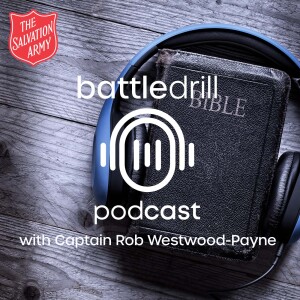
Read Leviticus 25:1-7. What do you think of when you hear the word, Sabbath? For many of us, it means our Sunday, the chief day of worship in our society. For others, it means a special day of rest for us as an individual.
In Leviticus 25, God radically extends this principle of Sabbath rest and relief to creation – to the land and the environment, to the economy and to society in general. God had already given an inkling of this approach in his commands found in Exodus 23, telling his people that allowing the land to lie fallow so as to not overwork it would also benefit the poor, wild animals, the animals made to work the land, and marginalised persons such as slaves and foreigners.
God’s commands remind us that creation is not ours. We do not own it to do with as we please. It belongs to God. He generously shares it with us. It is given to us to use, but not to abuse. Despite these commands, it is clear we have overworked the land. Our lifestyles demand more and more from creation. We are so reliant on so much land that we have to admit that trying to implement a Sabbath for the land every seven years would be challenging. But we must each pray that God would give us wisdom to ensure we are not contributing to over-exploitation of creation. Self-denial and Sabbath each have a part to play in the way the Christian interacts with creation.
THINK IT OVERThink about the following:
• The Salvation Army has always striven to put people to work and take care of them. It is the foundation of the Cabhorse Charter and our approach to tackling poverty around the world. How could we apply this same ethos to our care for creation? What part might Sabbath play in that?
More Episodes
 2024-08-01
2024-08-01
 18
18
 2024-07-31
2024-07-31
 15
15
 2024-07-30
2024-07-30
 21
21
 2024-07-29
2024-07-29
 20
20
 2024-07-28
2024-07-28
 13
13
 2024-07-27
2024-07-27
 17
17
 2024-07-26
2024-07-26
 19
19
 2024-07-25
2024-07-25
 18
18
 2024-07-24
2024-07-24
 18
18
 2024-07-23
2024-07-23
 18
18
 2024-07-22
2024-07-22
 17
17
 2024-07-21
2024-07-21
 14
14
 2024-07-20
2024-07-20
 19
19
 2024-07-19
2024-07-19
 15
15
 2024-07-18
2024-07-18
 18
18
 2024-07-17
2024-07-17
 20
20
 2024-07-16
2024-07-16
 21
21
 2024-07-15
2024-07-15
 14
14
 2024-07-14
2024-07-14
 13
13
 2024-07-13
2024-07-13
 18
18
Create your
podcast in
minutes
- Full-featured podcast site
- Unlimited storage and bandwidth
- Comprehensive podcast stats
- Distribute to Apple Podcasts, Spotify, and more
- Make money with your podcast
It is Free
- Privacy Policy
- Cookie Policy
- Terms of Use
- Consent Preferences
- Copyright © 2015-2024 Podbean.com





